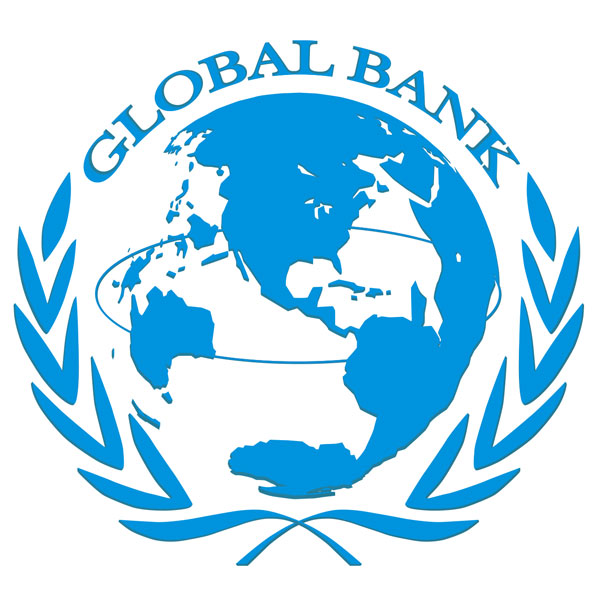
Newport Beach, CA – August 18, 2020 –On World Humanitarian Day, the Global Bank Group is paying tribute to all humanitarian personnel, including Global Bank and associated personnel, who have worked tirelessly to promote the humanitarian cause, as well as to those who have perished in this cause. It is also an opportunity to celebrate the spirit that inspires humanitarian work.
An unprecedented challenge to the humanitarian system in both scale and complexity
The COVID-19 pandemic presents an unprecedented challenge to the humanitarian system in both scale and complexity. We began 2020 with the unexpected spread of infectious disease, and the impact of protracted and often intensifying conflicts have combined to drive the humanitarian needs to unprecedented levels this year.
Development Initiatives’ 2020 Global Humanitarian Assistance report reveals that in 2019 over one billion people were living in countries affected by long-term humanitarian crises such as conflict, displacement and natural disasters. In the same period, international UN appeals hit a record high but international humanitarian funding dropped by $1.6 billion.
Covid-19 is compounding these existing humanitarian challenges: 34 of the 63 countries that require humanitarian assistance to deal with the pandemic are in a long-term humanitarian crisis.
Attacks on health care and aid workers continue
Dozens of highly violent conflicts are causing widespread hunger, displacement, death and destruction around the world. Armed conflicts are killing and maiming a record number of children, forcing them to flee their homes and putting their lives on hold. Women and girls are at higher risk of sexual violence. Humanitarian action reaches millions around the globe with lifesaving assistance – but aid workers are facing growing risks, and health workers and health facilities are under attack, putting millions of people at risk by denying them access to vital care and aid.
According to the Global Humanitarian overview 2020, aid workers face growing risks of being assaulted, shot and kidnapped in the line of duty. 2018 saw the second-highest number of attacks against aid workers on record, and the highest number of victims since 2013. More than 400 aid workers were affected by significant violence in 226 attacks in 35 countries; 131 were killed and 130 kidnapped. National staff were disproportionally impacted, representing 85 per cent of victims and 94 per cent of deaths. Male aid workers represented the majority of victims, except in cases of sexual assault, where all reported survivors were female.1
Despite these growing humanitarian needs, the harsh reality is that with the global economy under significant strain and donor governments facing increasing domestic costs, global aid is projected to decline further and faster.
The Global Bank Group Launches Central Emergency Response Fund to Promote Early Action and Rapid Response to Reduce the Loss of Life
On December 1, 2019, in advance of the United Nations, Climate Change Conference (COP25) that held December 2-13, 2019 in Madrid, Spain, the Global Bank Group announced the launch of the Global Bank Central Emergency Response Fund (GB-CERF). The GB-CERF was established in 2019, as a 501(c)(3) non-profit, multi-donor partnership and grant-making financing mechanism. Its purpose is to ensure a more predictable, flexible and timely response to disasters, conflict and fragility.
The objectives of the Global Bank Central Emergency Response Fund are to promote early action and rapid response to reduce the loss of life, enhance response to time-critical requirements and to strengthen Global Bank Group’s core elements of humanitarian intervention, particularly in underfunded crises, based on demonstrable needs and priorities identified in consultation with the affected State as appropriate.
GB-CERF ENSURES A MORE PREDICTABLE, FLEXIBLE AND TIMELY RESPONSE TO COMPLEX HUMANITARIAN EMERGENCIES
The Global Bank Central Emergency Response Fund (GB-CERF) is a humanitarian fund established by the Global Bank Group for all nations and for all potential victims of disasters. It was designed to spearhead the Global Bank Group's efforts to address natural and man-made humanitarian emergencies. The GB-CERF is primarily focused on what happens a day after survivors have been rescued, and the lifesaving aid has been delivered. While meeting lifesaving and life-sustaining needs, the GB-CERF kick-starts funding for larger-scale critical projects by Global Bank and their partners. Its purpose is to ensure a more predictable, flexible, and timely response to complex humanitarian emergencies. The rapid and flexible support offered by the GB-CERF makes it a central pillar of the Global Bank Group agencies’ crisis response.
About World Humanitarian Day
World Humanitarian Day, August 19th, is a day dedicated to recognizing humanitarian personnel and those who have lost their lives working for humanitarian causes. It was designated by the United Nations General Assembly as part of a Swedish-sponsored GA Resolution A/63/L.49 on the Strengthening of the Coordination of Emergency Assistance of the United Nations. It marks the day on which the then Special Representative of the Secretary-General to Iraq, Sérgio Vieira de Mello and 21 of his colleagues were killed in the bombing of the UN Headquarters in Baghdad. Since then, nearly 5,000 humanitarians have been killed, wounded or abducted, and the 2010-2019 decade experienced a 117 per cent increase in attacks compared to 2000-2009.
Related Documents
The General Assembly of the United Nations Resolution A/63/L.49
The General Assembly of the United Nations Resolution A/RES/63/139
Top UN envoy Sergio Vieira de Mello killed in terrorist blast in Baghdad
Briefing on World Humanitarian Day
| 1 | Global Humanitarian Overview |







